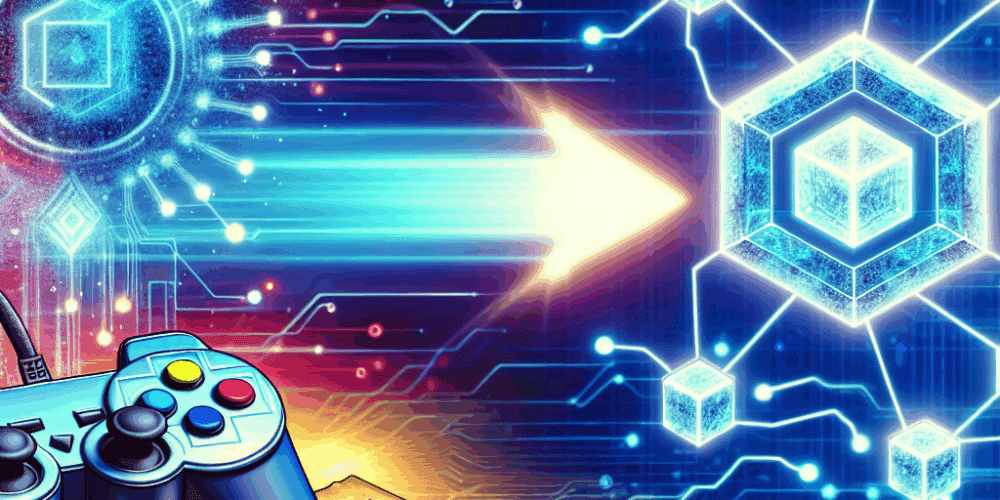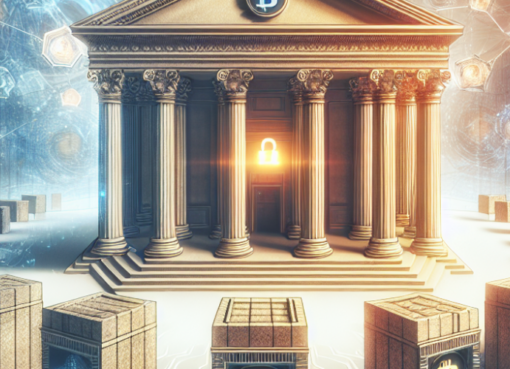In an unprecedented development that could significantly alter the landscape of digital gaming, several top gaming companies have announced the integration of blockchain technology into their in-game economy systems. This revolutionary shift not only promises to augment user experience by enhancing security and transparency but could also lead to real-world profitability for gamers.
The gaming industry, a multi-billion-dollar arena, has been rapidly evolving with advancements in technology. Up until now, most digital games operated with closed in-game economies where the currencies and assets remained confined within the virtual world. However, with the advent of blockchain technology, these assets can now be tokenized and have real economic value in the physical world.
Tokenization of in-game assets means that items acquired during gameplay, such as weapons, costumes, and even unique characters, can be converted into digital tokens. These tokens can then be traded on various cryptocurrency exchanges or used across different gaming platforms. This interoperability not only enhances the value of in-game purchases but also allows gamers to earn real income from their gaming skills and investments.
One of the pioneering companies leading this change is Epic Fantasy Games, which has announced the launch of its blockchain-based game, “Realm of Guardians” later this year. The game will feature a built-in marketplace that leverages blockchain to ensure secure and transparent transactions. Gamers will be able to trade assets with peers, create and maintain digital ownership, and even earn cryptocurrency through various game activities.
Industry experts believe this integration of blockchain into gaming could solve many prevalent issues such as fraud and transaction security. Blockchain’s decentralized nature means that it does not have a single point of failure and thus provides a more secure environment for transactions. Moreover, blockchain creates an immutable record of all transactions, ensuring transparency and traceability.
The economic implications of blockchain in gaming are vast. According to James Anderson, CEO of Epic Fantasy Games, “Incorporating blockchain technology transforms the gaming industry into a ‘play-to-earn’ model, where players are rewarded for their gameplay with potentially valuable assets, thus motivating continued player engagement and investment.”
However, this shift is not without its challenges. Regulating such a decentralized form of economic activity could be complex. Moreover, the environmental impact of blockchain technology, primarily due to its high energy consumption, also raises concerns.
To address these concerns, several companies, including Epic Fantasy Games, are exploring the use of more energy-efficient blockchain technologies such as proof-of-stake algorithms. These are less energy-intensive compared to the traditional proof-of-work mechanisms used by networks like Bitcoin.
Aside from regulatory and environmental challenges, the psychological impact of mixing leisure activities with financial gains and losses is also a topic of discussion among psychologists and sociologists. They argue that the ‘play-to-earn’ model could change the way games are perceived and experienced.
Despite these challenges, the fusion of blockchain and gaming could potentially lead to a more engaging and rewarding gaming experience. This integration could also pave the way for new economic models where digital and real-world economies converge.
As this technology continues to develop, it will be interesting to see how other industries might adopt blockchain to enhance their economic systems and how regulatory bodies across the world will respond to these advances.
In conclusion, the introduction of blockchain into the gaming industry marks a significant shift towards more open and economically viable gaming environments. As this technology matures, it will possibly reshape not just gaming economies but also contribute to a broader acceptance and integration of blockchain in various other sectors.




